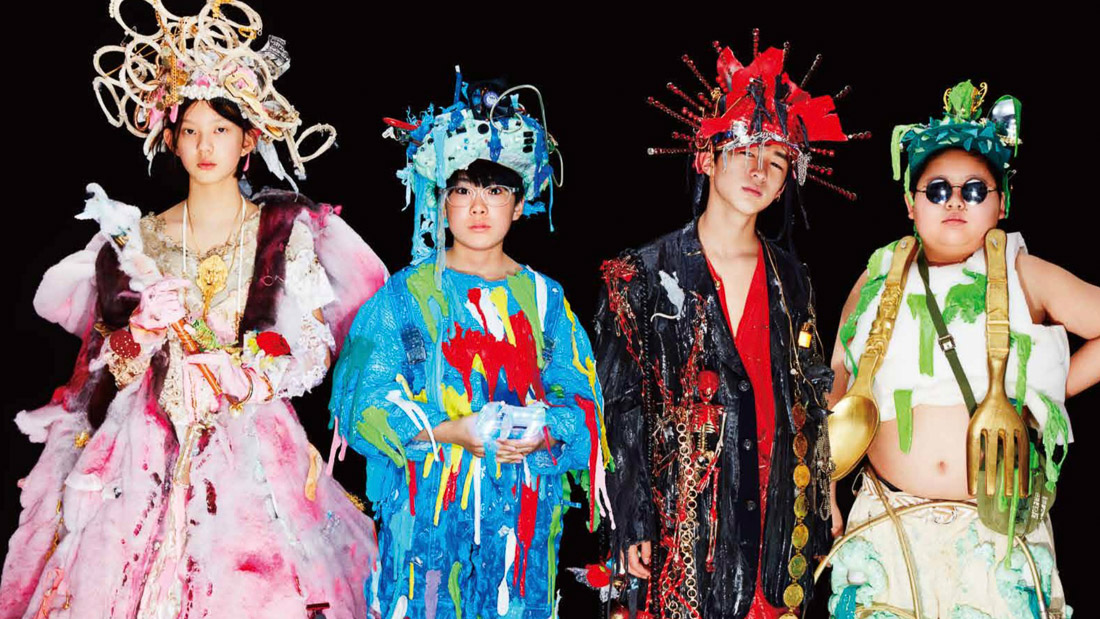The sheer amount of style that writer/director Makoto Nagahisa shows off in We Are Little Zombies is impressive. Aesthetically, there is a lot going on here. Four children–Hikari, Ikuko, Ishi, and Takemura–meet and befriend each other in the days after they’ve all been orphaned. In their grief and confusion, they form a rock band. They call themselves “Little Zombies” in reference to their collective inability to show much sadness given the circumstance.
Nagahisa methodically goes through each orphan’s life, examining each of their relationships with their parents (spoiler alert: they weren’t great), their musical instrument of choice, and final moments before each fateful event. The framework to all of this is a series of retro video game motifs, complete with hyper-aware sound design, and abrupt editing choices. It’s all very much of a piece, a compliment to the formal skill if not much else. Sometimes, the cute tone betrays the stark circumstances. Consider a scene towards the beginning of the picture: as one of the four orphans begins to identify his mother, a prank show camera show appears and declares the whole thing to be a hoax. Quickly, voiceover informs us: “Of course, there was no such twist.”
When the four children are interacting, there are some genuinely heartfelt–and often funny –scenes. Sadly, these instances are often interrupted by clever visual tricks that feel as restrictive as they are explorative. Running at 120 minutes, after a while the flourishes become aggravating more than anything else. These four young performers are plenty talented, but aren’t given quite enough to do. Their band is introduced as a centerpiece to the film, then never really takes hold, as though those behind the camera became disinterested in the music. Funny enough, Makoto Nagahisa provided the music himself.
There are plenty of fairly standard observations made–funerals are boring–and some more interesting bits: a bandmate looks up at a tall building, claims it looks like the Tower of Babel and extends her hand. The camera captures this moment as POV, finding a frame that’s engaging and quite memorable. If only the narrative were as unforgettable. Any character development feels obstructed by Nagahisa’s overactive imagination. Every eye-popping sequence and strongly-performed scene feels too far from the next. Perhaps with a little less, there would be quite a bit more. There’s so much to respect in We Are Little Zombies, just not enough to hold on to.
We Are Little Zombies premiered at the Sundance Film Festival.
Follow our festival coverage here.

